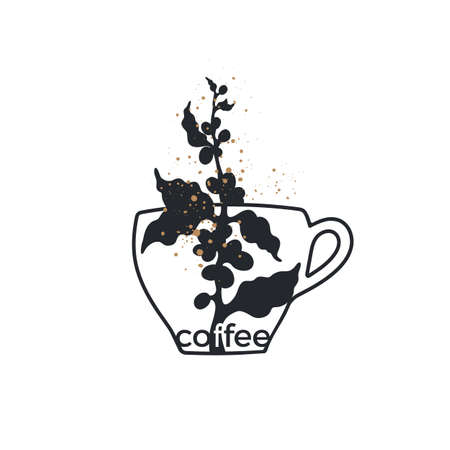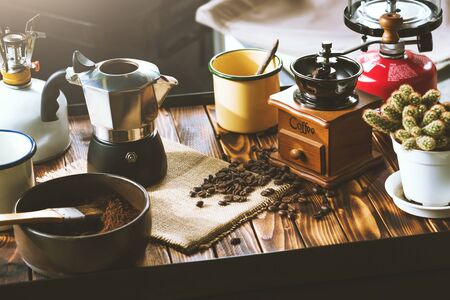Brewing India’s Own: Rise of Desi Coffee Brands
India’s coffee scene is buzzing with fresh energy as a new generation of homegrown brands takes centre stage. No longer just about chai, urban youth and millennials are embracing Indian coffee with pride. From Bengaluru to Mumbai, these local roasters are rewriting the café culture by blending regional traditions—think filter kaapi and chicory blends—with global aesthetics and Instagram-worthy experiences. The result? Cafés and brands that don’t just serve coffee, but also deliver a slice of contemporary Indian lifestyle. Whether it’s single-origin beans from Chikmagalur, artisanal cold brews, or eco-friendly packaging, these desi brands are infusing their own roots into every cup while tapping into the aspirations of India’s young, digital-savvy crowd.
2. Local Flavours, Global Appeal
India’s homegrown coffee brands are truly redefining the café experience, blending the country’s rich heritage with global trends to create brews that are both Insta-worthy and authentic. What sets Indian coffees apart is their unique flavour profiles, deeply influenced by the terroir and traditions of regions like Coorg, Chikmagalur, and Araku Valley. These areas are not just names on a map—they represent generations of passionate growers and a vibrant coffee culture.
Signature Coffee Regions & Their Distinct Notes
| Region | Flavour Profile | Specialty |
|---|---|---|
| Coorg (Kodagu) | Rich, earthy, chocolatey undertones with mild acidity | Robusta beans; shade-grown techniques; spice intercropping |
| Chikmagalur | Balanced body, bright acidity, hints of nuts and fruit | Arabica beans; traditional sun-drying methods |
| Araku Valley | Crisp, fruity notes with floral aroma; organic cultivation | Tribal-owned estates; 100% organic and sustainable farming practices |
From Bean to Brew: Infusing Local Identity
Indian coffee brands take pride in sourcing directly from these iconic regions, ensuring every cup tells a story rooted in Indian soil. Brands like Blue Tokai and The Indian Bean work closely with local farmers, embracing traceability and single-origin sourcing—key for today’s quality-conscious desi consumers. These brands often highlight estate names or even specific farmer stories on their packaging, making each bag more than just coffee—it’s a celebration of Indian craftsmanship.
The Insta-Ready Twist: Modern Meets Traditional
What really gives these brands their global appeal is how they marry tradition with modern aesthetics. From minimalistic packaging inspired by Warli art to brewing guides in Hinglish on Instagram Reels, Indian coffee brands know how to connect with young urbanites. Limited edition blends like “Monsoon Malabar Cold Brew” or “Filter Kaapi Latte” nod to both international café culture and India’s own filter coffee legacy.
A Sip of India—No Matter Where You Are
Whether you’re chilling at a Mumbai café or brewing at home in Bangalore, these coffees evoke the spirit of India—bold, diverse, and always a little bit extra. With every cup, you don’t just taste the bean—you feel the vibe of India’s bustling markets, lush plantations, and creative energy. Truly made for the world but brewed in Bharat!

3. Instaworthy Ambience: Cafés With Swag
If you’re always on the lookout for the perfect spot to click that drool-worthy coffee shot, India’s homegrown cafés totally get your vibe. From Mumbai’s hipster corners to Delhi’s artsy nooks and Bengaluru’s indie gems, these places aren’t just about the coffee—they’re a whole aesthetic experience. Walk into any of these spaces and you’ll be greeted with interiors bursting with personality: think hand-painted murals inspired by Bollywood pop culture, vintage rickshaws turned into cosy seating, and walls splashed with vibrant Rangoli colours. It’s not just about looking good though—these cafés are serious about their beans, too. You’ll find baristas pouring lattes with intricate mandala art or brewing single-origin Indian beans in classic Moka pots, making every cuppa a visual treat for your Insta feed.
4. Coffee Culture Goes Digital
India’s homegrown coffee revolution is not just brewing in cafés and kitchens—it’s all over social media! Young Indians are sharing their #DesiCoffee moments, making coffee a lifestyle statement and a digital trend. The shift from traditional chai to artisanal coffee is being celebrated with hashtags like #ChaiToCoffeeSwitch, reflecting both cultural pride and an embrace of global café culture.
How Social Media Shapes Indian Coffee Trends
Instagram feeds are overflowing with aesthetically styled coffee cups, latte art tutorials, and creative home-brewing setups. Influencers and everyday enthusiasts alike document their journeys from discovering local beans to perfecting the South Indian filter kaapi or experimenting with cold brew. Coffee has become an extension of personal branding, with every post curated for maximum visual appeal and relatability.
Popular Hashtags Among Indian Coffee Lovers
| Hashtag | Description | Cultural Vibe |
|---|---|---|
| #DesiCoffee | Showcasing Indian-origin beans, regional brewing styles, and local brands | Proudly Indian, rooted in tradition yet modern |
| #ChaiToCoffeeSwitch | Celebrating the transition from tea to coffee culture | Youthful, experimental, urban cool |
| #HomeBrewedIndia | Highlighting DIY coffee creations at home | Creative, resourceful, community-driven |
| #IndianCoffeeBrands | Featuring reviews of Made-in-India coffee products and cafes | Support local, authentic experiences |
The Rise of Digital Coffee Communities
This Insta-ready vibe is more than just aesthetics—it’s about building connections. Online forums and private groups on WhatsApp or Telegram let fans swap recipes for South Indian filter coffee or discuss the best grind size for their French press. Virtual workshops with Indian roasters are making specialty knowledge accessible, while meme pages poke fun at the eternal “chai vs. coffee” debate.
The result? A vibrant digital landscape where India’s coffee culture is as much about sharing stories as sipping brews—a space where everyone from Mumbai millennials to Bangalore techies can claim their place in the #DesiCoffee movement.
5. Sustainable Sips: Desi Brands Making a Difference
India’s coffee revolution isn’t just about brewing the perfect cup for your Instagram grid—it’s also about caring for Mother Earth and our local communities. Today, a growing number of homegrown coffee brands are walking the talk when it comes to sustainability, ethical sourcing, and giving back to our desi farmers. These brands are not just chasing global trends—they’re setting new benchmarks in conscious consumption that resonate with India’s young, socially aware generation.
Ethical Sourcing: Bean to Brew Transparency
Leading Indian coffee start-ups are building close-knit relationships with local coffee-growing communities across Coorg, Chikmagalur, and Araku Valley. By cutting out middlemen and working directly with farmers, brands like Blue Tokai and Black Baza ensure fair prices reach the hands that nurture every bean. This transparent supply chain means you can sip your morning filter kaapi or French press knowing exactly where your beans come from—right down to the estate and harvest season.
Eco-Friendly Packaging: Sip Without Guilt
Plastic-free packaging is no longer just a buzzword; it’s a movement being championed by Indian coffee labels. From compostable pouches to glass jars and reusable tin containers, brands such as Third Wave Coffee Roasters and Sleepy Owl are proving that chic packaging can be eco-friendly too. So whether you’re gifting a box of cold brew bags or stocking up on single-origin grounds for your moka pot, you’ll be doing good for both style and sustainability.
Empowering Local Farmers: The Heartbeat of Indian Coffee
The soul of India’s artisanal coffee scene lies in its commitment to uplifting our farming community. Several brands reinvest profits into skill training, health initiatives, and education for their partner growers. Some even encourage women-led farming cooperatives, ensuring that every sip supports an inclusive future for rural India. It’s more than just business—it’s about creating long-lasting impact at the grassroots level.
So next time you post that Insta-worthy pour-over shot with #VocalForLocal or #DesiCoffee, know that you’re part of a bigger movement. With every cup from these mindful brands, you’re helping build a greener planet and a stronger community—one sustainable sip at a time.
6. DIY Indian Coffee: Brew It at Home
There’s nothing quite like waking up to the aroma of freshly brewed Indian coffee, and thanks to the surge of homegrown coffee brands, brewing an Insta-worthy cup at home is now easier than ever. Whether you’re a die-hard South Indian filter kaapi fan or a new-age pour-over enthusiast, here’s how you can master the art of Indian coffee in your own kitchen—desi style!
Essential Tools for Your Home Brew
South Indian Filter (Kaapi Dabara Set)
This classic brass or stainless steel filter is a must-have for making authentic filter kaapi. Available in most local markets and online, it brings that nostalgic Madras café vibe right into your home. Pair it with a traditional dabara and tumbler set to elevate your experience.
French Press & Pour-Over Kits
For those who love experimenting, French press and pour-over kits from Indian brands like Blue Tokai or Third Wave Coffee Roasters are super accessible. These gadgets help you control every aspect of brewing—perfect for capturing those Instagrammable coffee moments!
Tips for Brewing the Perfect Cup
Choose Fresh, Local Beans
Opt for beans from homegrown brands such as Araku Coffee or Black Baza—they’re ethically sourced and roasted fresh for the ultimate flavour hit.
Get the Grind Right
Use a medium-coarse grind for filter coffee and a medium-fine one for pour-overs. If you don’t have a grinder, many Indian roasteries will grind the beans to your preferred setting—just ask!
Nail the Ratio & Temperature
For filter kaapi, use 2 tablespoons of ground coffee per cup with hot (not boiling) water to extract those earthy notes. For pour-over, aim for a 1:15 ratio of coffee to water and maintain water temperature around 90°C for best results.
Add That Desi Touch
No Indian coffee is complete without a personal twist—think jaggery instead of sugar, a dash of cardamom, or even a shot of chicory for that authentic taste.
Brew Like a True Coffee Aficionado
The beauty of homegrown Indian coffee culture is its diversity and accessibility. So whether you’re whipping up frothy filter kaapi or showing off your slow-drip skills on social media, remember: It’s all about celebrating local flavours with pride—and having fun while you do it! Happy brewing, yaar!

